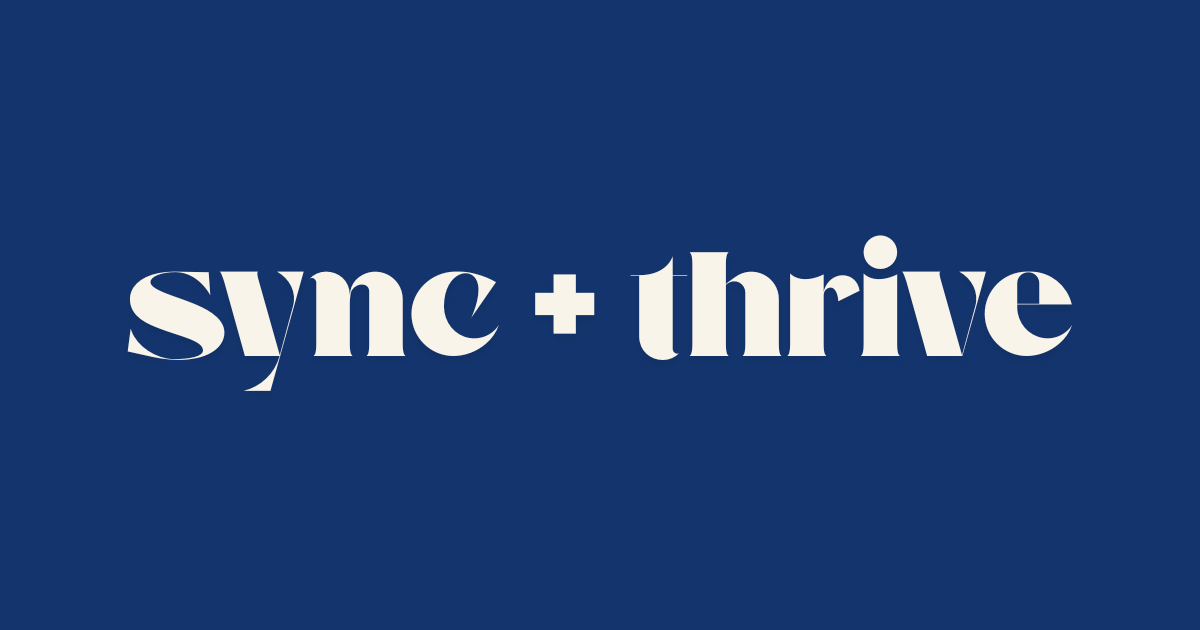Happy Tuesday friends, you may be reading this on your coffee break...if you are, take a good look at what's in your cup because what we're about to share might just blow your coffee-loving minds.

What's Inside
If this is your first time reading our newsletter—Welcome! Subscribe + Thrive here.
Thousands are flocking to 2025’s “It Card”
This leading card now offers 0% interest on balance transfers and purchases until nearly 2027. That’s almost two years to pay off your balance, sans interest. So the only question is, what are you waiting for?
Okay, we need to talk about something that literally made us pause mid-sip this week. We're coffee people—through and through. Mornings don't officially start until that first cup, and most days we cut it off by noon. Every once in a while, we'll share a decaf after dinner with dessert. Coffee is part ritual, part joy.
Coffee is one of the most researched—and beloved—beverages on the planet. But here's what blew our minds: not all cups are created equal when it comes to heart health. The way you brew your coffee can make a surprisingly big difference for your cholesterol, especially LDL (the "bad" kind).
✨ The Brew Truth
Here's where it gets interesting:
• Unfiltered coffee (French press, Turkish, boiled, espresso, moka pot) contains natural oils called diterpenes (pronounced die-ter-peens) (cafestol and kahweol). These compounds raise LDL cholesterol, sometimes by as much as 9–14% compared to filtered coffee.¹
The numbers don't lie— a classic study confirmed that when people switched from boiled coffee to filtered coffee, their LDL levels dropped by ~16 mg/dL.²,³
• Paper-filtered coffee (drip, pour-over) removes nearly all diterpenes, leaving the antioxidants intact. In fact, filtered coffee has been linked to lower cardiovascular risk overall.⁴ A brand new 2025 Swedish study confirmed this, finding that switching just three cups from unfiltered to paper-filtered coffee could reduce LDL cholesterol by 13% over 5 years.⁶
Now, here's what surprised us most— espresso & moka pot coffee fall in the middle: less LDL-raising than French press, but still more than drip. The short extraction time helps, but the metal filter doesn't catch the diterpenes.⁴ A large 2022 study from Norway found that drinking 3-5 cups of espresso daily increased total cholesterol by 0.09 mmol/L in women and 0.16 mmol/L in men—confirming that brewing method really does matter.⁵
💡 The Daily Grind
If you're watching cholesterol, think of it as a ratio, not a restriction. Enjoy your espresso shot without guilt—it's unlikely to spike your LDL overnight. But for your daily habit, making filtered coffee your default is a simple, heart-smart swap. That way, you get the best of both worlds: flavor variety and cardiovascular support.
Here's something interesting we learned: the latest research shows men may respond more strongly to espresso's cholesterol effects than women. So if you're a couple with different cholesterol concerns, this might influence how you each approach your coffee choices.
If you or your partner are keeping an eye on cholesterol, a simple swap could help:
• Choose paper-filtered brew methods (drip, pour-over, AeroPress with paper)
• Limit unfiltered styles (French press, Turkish, espresso, moka pot) to occasional enjoyment rather than daily habit
The beauty here? You don't have to give up coffee—it's about making informed choices that work for you.
Since filtered coffee is the heart-healthy choice, we came up with a way to keep the latte ritual alive — without the LDL bump. Meet The Fauxpresso Latte: all the cozy, café vibes, made right at home with your drip or pour-over.
☕ Recipe Corner: The Fauxpresso Latte
Skip the espresso machine — here’s how to make a creamy latte vibe with your morning pour-over or drip coffee:

❤️ A Perfect Blend
Here's how we're approaching this as a couple: filtered coffee became our weekday love language, with moka pot saved for mid-week treats and lazy Sunday mornings. It feels less like restriction and more like making those special brewing moments actually special.
Try this with your partner: make filtered coffee your weekday default and save espresso or French press for weekends. You'll both get the antioxidant perks without the LDL spike, plus you're synced on heart health—which honestly feels pretty good.
We'd love to hear from you: Are you going to give the coffee switch a try? Or maybe test out that faux espresso recipe? Drop us a line and let us know how it goes!
Here's to brewing better together—one cup at a time! ☕
— Jaylene + Aaron
📚 References
Urgert R, et al. Randomized trial on cafetiere vs filtered coffee and serum cholesterol. BMJ. 1996;313:1362–1366. [PubMed]
Bak AAA, et al. Boiled vs filtered coffee and serum cholesterol. Arteriosclerosis and Thrombosis.1991;11(3):586–593. [AHA Journal]
Urgert R, et al. Randomized trial on cafetiere vs filtered coffee and serum cholesterol. BMJ. 1996;313:1362–1366. [PubMed]
Gross G, et al. Coffee diterpenes and lipid metabolism. Food Chem. 2012;135(4):2318–2324. [ScienceDirect]
Tverdal A, et al. Coffee consumption and serum cholesterol. Front Cardiovasc Med. 2022;9:866119. [PMC]
Iggman D, et al. Diterpenes in coffee from various commercial brewing systems. Nutr Metab Cardiovasc Dis.2025. [ScienceDirect]
🛑 P.S…Two quick asks before you go.
Found something you think we should try? Reply and let us know—or DM us on IG @syncyourwellness.
If you have a requested topic to be discussed regarding couples health strategies, email us at [email protected] and let us know.
Visit www.syncyourwellness.com for more resources for your shared health strategy?
🫶 Looking to align your health goals as a couple, prioritize your fitness and nutrition? Check out these top guides:


